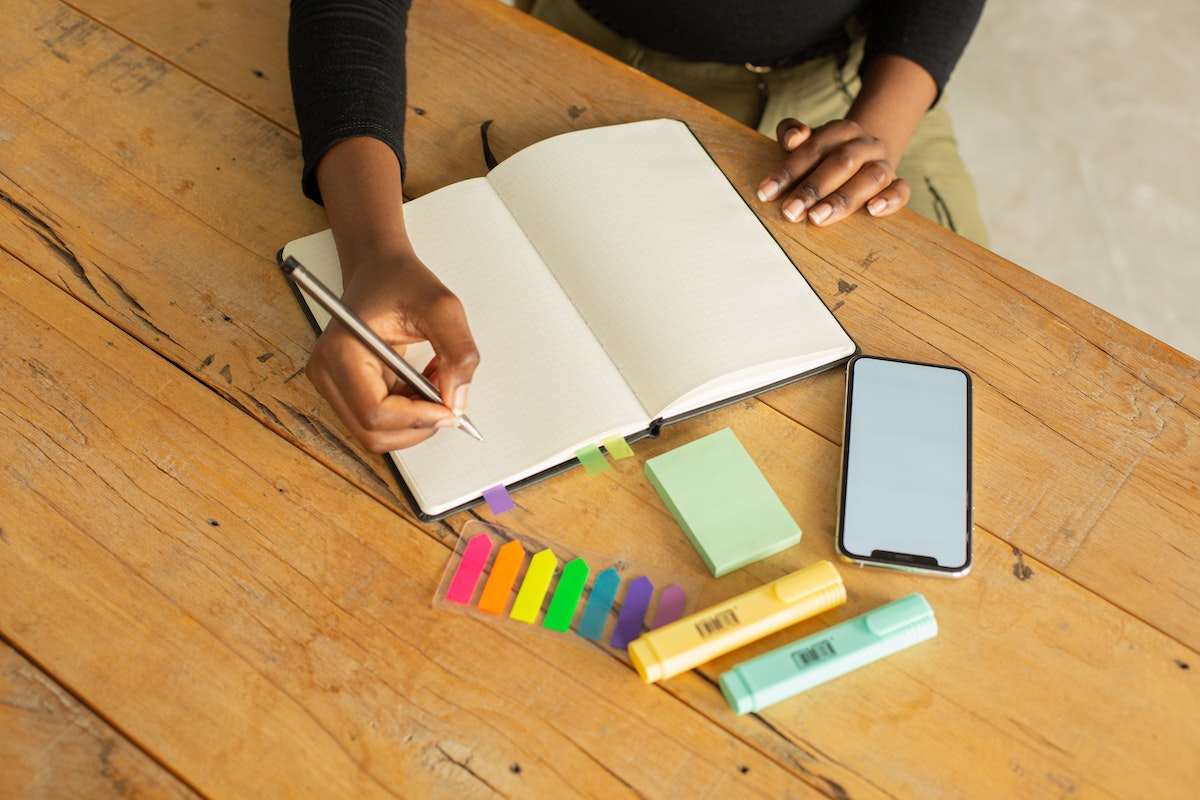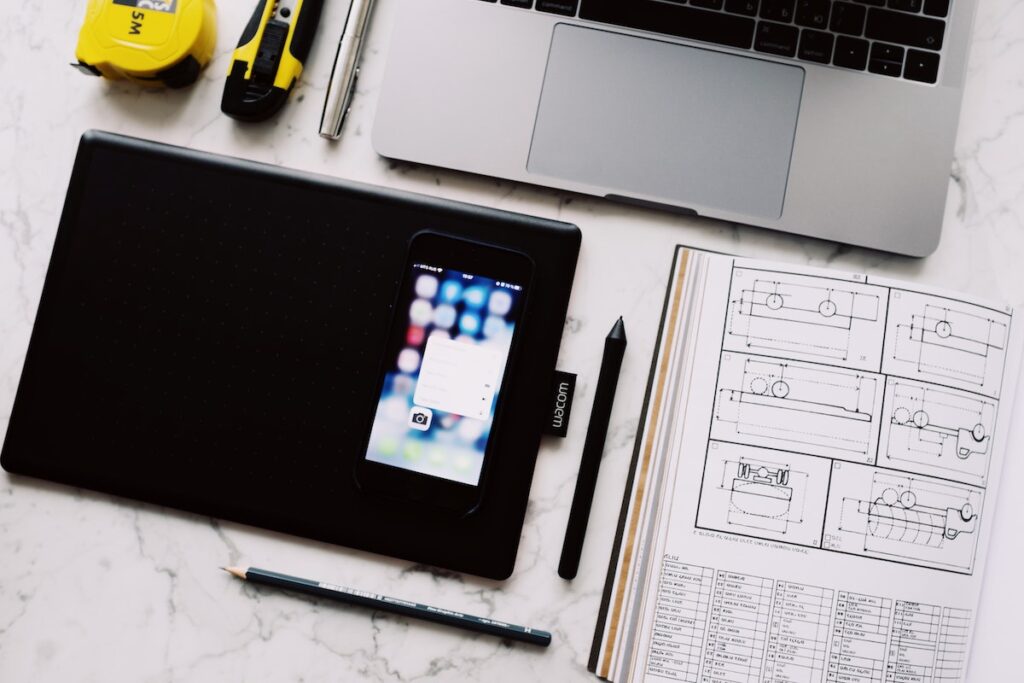
The Best Free Note-Taking Apps
In today’s fast-paced world, keeping your information organized is nonnegotiable. An effective way to do that is to use the best note-taking apps to jot down anything on your mind. Notes apps let you take all types of notes, including meeting notes, grocery lists, to-do lists, and more.
However, choosing the right note-taking app can be challenging. To help you narrow down your options, we’ve curated a list of the best note-taking apps you can find. We’ve also reviewed some of the best free note-taking apps if you don’t want to spend any money.
What Is a Note-Taking App?
A note-taking app is a mobile app that lets you record information that you can easily access. You can create a to-do list, reminders, or a simple note about anything. Some note-taking apps also allow you to store audio files, photos, and other media for quick access.
Why Do People Use Note-Taking Apps?
When things come across our minds, we want to write them down before they fizzle away. Typically, we depend on handwritten notes or sticky notes for this purpose. With note-taking apps, the process is easier. These apps allow people to create, organize, and share notes for different purposes. People also use note-taking apps for meetings and as organizational tools. The possibilities are endless.
How the Best Note-Taking Apps Can Help You Stay Organized
The best note-taking apps have plenty of features that make planning and coordination a breeze. These features include note-taking, sharing, collaboration, and storage.
Taking Notes
Perhaps the most obvious but most significant feature of note-taking apps is that you can take notes with them. You can easily create different note types, recording thought processes, meeting notes, to-do lists, schedules, and more. Some apps allow you to save images, audio, and other types of media.
Sharing and Collaboration
Note-taking apps not only let you create notes but also allow you to share them with others. This feature makes these apps useful productivity tools for sharing meeting notes with your colleagues. You can share these notes in real-time at a tap, making real-time collaboration possible. The best note-taking apps provide one way of ensuring effective teamwork and collaboration.
Storage
There’s no use making a grocery list, for example, if you can’t access it when you get to the store. Thankfully, note-taking apps save your notes on your device or to cloud storage, so they make an excellent choice for keeping information you want for later. Also, many note-taking apps support the syncing of your data between devices.
The 10 Best Note-Taking Apps: Overview
| App | Availability | Notable Features | Cost |
|---|---|---|---|
| Dropbox Paper | iOS, Android | Designed for meeting notes | Free |
| Evernote | iOS, Android | Integration with workspaces, Google Calendar | $0–$9.99 per month |
| Google Keep | iOS, Android | Google integration, time-based reminders | Free |
| Joplin | iOS, Android | Open-source, support for videos | Free |
| Microsoft OneNote | iOS, Android | Collaboration, Microsoft Office integration | $6.99 per month (Microsoft 360 subscription) |
| Milanote | iOS, Android | Visual boards, various file types | $0–$12.50 per month |
| Paper | iOS | Syncs with iCloud, exports to a range of file formats | $0–$4.99 per month |
| Simplenote | iOS, Android | Easy to use, automatic syncing | Free |
| Standard Notes | iOS, Android | End-to-end encryption, open-source | $0–$11.99 per month |
| Zoho Network | iOS, Android | Unique text cards, support for multiple devices | Free |
The Best Note-Taking Apps to Make Your Life Easier
The best note-taking apps save you the stress of carrying a pen and paper around. You can create, store, and share unlimited notes with these apps. Most combine a simple user interface with powerful features.
Evernote | $0–$9.99 per month
- Best Feature of Paid Version: Integration with Slack and Microsoft Teams
- Biggest Downside of Paid Version: None
Evernote is a feature-rich note-taking app. You can take notes, schedule upcoming tasks, and create meeting schedules. You can also add images or audio. Whatever your goals, Evernote can help you stay organized.
The app allows you to sync your digital notes across multiple devices. While there is a free version, the paid version offers premium features like offline access, Google Calendar support, and integration with workspaces like Slack and Microsoft Teams.
Microsoft OneNote | $6.99 per month (Microsoft 360 subscription)
- Best Feature of Paid Version: Collaboration features
- Biggest Downside of Paid Version: Requires Microsoft 365 subscription
Microsoft OneNote allows you to store all your information in one place. The app has collaboration features that allow others to work on your notes, making your work process faster. You can record lectures, make a grocery list, or take notes during Zoom meetings on the go.
Milanote | $0–$12.50 per month
- Best Feature of Paid Version: Visual boards
- Biggest Downside of Paid Version: Lack of tree structure for note storage
Milanote features visual boards that allow you to organize your thoughts and ideas. The app also supports various file types, including PDF, JPG, and Word and Excel files. You can use the web clipper to save information found online.
Paper | $0–$4.99 per month
- Best Feature of Paid Version: Minimalistic design
- Biggest Downside of Paid Version: Unavailable on Android devices
Paper features a simple, sleek design and works seamlessly across your Apple devices. It also offers a generous unlimited free trial period for premium features. Unfortunately, the app doesn’t support Android, so it’s not for everyone.
Standard Notes | $0–$11.99 per month
- Best Feature of Paid Version: End-to-end encryption
- Biggest Downside of Paid Version: None
Standard Notes is an open-source note-taking app that respects your privacy. It keeps your data encrypted without compromising on functionality. It allows you to choose from a range of note types, including rich text, markdown text, plain text, tasks and to-dos, code, spreadsheet, and more.
The Best Free Note-Taking Apps
Not everyone is willing to pay a monthly or annual subscription for a note-taking app. Thankfully, you have a number of free options to choose from, many of which include some of the same advanced tools as their paid counterparts.
Dropbox Paper
- Best Feature: Designed for meeting notes
- Biggest Downside: Confined to the Dropbox app ecosystem
Dropbox Paper is a free suite of meeting tools that lets you create and edit documents on your mobile device. You can use it to take meeting notes, brainstorm an idea, or make a plan. Among its essential features is its offline functionality.
Google Keep
- Best Feature: Time-based reminders
- Biggest Downside: No desktop app other than the browser-based version
Google Keep allows you to take quick notes and make lists on your mobile device. It also lets you save audio and photos for later. Its powerful search function allows you to find a particular note without breaking a sweat. Your notes are saved on Google Drive, ensuring you can access the notes across devices. Many companies already depend on Google Drive to manage their documents effectively, so Keep might tie in well with your existing workflow.
Joplin
- Best Feature: Open-source
- Biggest Downside: Lacks handwriting recognition
Joplin is an open-source note-taking application. In addition to text, the app also allows you take notes in the form of images, audio, and videos. With Joplin Cloud, you can share your notes with others. There is also an option to publish your notes online.
Simplenote
- Best Feature: Easy to use
- Biggest Downside: No image support
With Simplenote, you can easily type and store any information you want. This text-only app is a powerful tool that lets you keep your thoughts and plans organized. It is user-friendly and automatically syncs across all your devices. You can add tags to your notes so that you can find them easily later.
Zoho Notebook
- Best Feature: Supports multiple devices
- Biggest Downside: Web clipper not very intuitive
Zoho Notebook claims to be an alternative to Evernote. The app has unique text cards with different designs for various note types. It also allows you to share your notes with friends and colleagues over a secure network. The app uses cloud services to ensure your data is synced across multiple devices.
Which of the Best Note-Taking Apps Should I Choose?

The best note-taking apps are easy to use, intuitive, and secure. They also boast advanced features, allowing users to share their notes with others and access their notes across multiple devices. Our top pick is Evernote for its reliable and dynamic features. If you don’t want to pay for Evernote premium, you can try any of the best free note-taking apps. You can even consider creating your own app from scratch by learning to code using the best coding apps for beginners.
Best Note-Taking Apps FAQ
There are many options available for note-taking. However, our top picks include Evernote, Google Keep, and Simplenote. Try these apps to determine which is best for you.
Yes, Android devices come with Google Keep as a built-in notes app. This app is free, syncs with the user’s Google account, and includes a powerful search tool.
OneNote boasts incredible features. However, due to the app’s somewhat sloppy interface, they’re not enough to give it the top spot. Still, if you’re a Microsoft Office power user, it might be the best choice for you thanks to its integration with other Office software.
No, you don’t have to pay to use a note app. There are a number of free note-taking apps with amazing features that can help you stay organized. Save your money and use it for something useful, such as learning how to code by joining a coding bootcamp.

